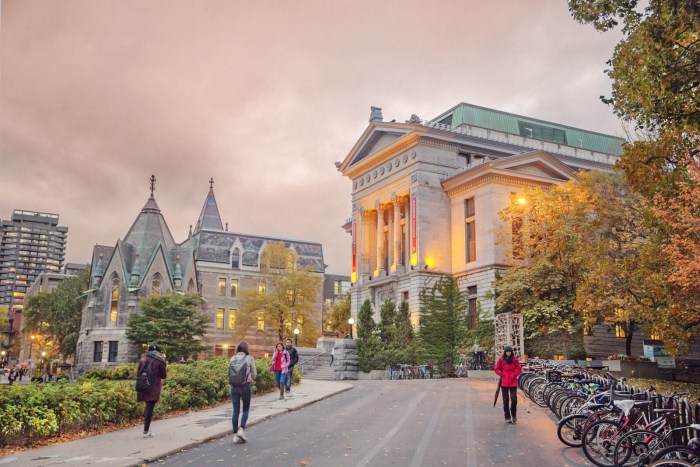Law Schools in Canada
- University of Toronto Faculty of Law: Consistently ranked among the top law schools in Canada and internationally, U of T Law is known for its rigorous academic programs, distinguished faculty, and extensive clinical opportunities.
- McGill University Faculty of Law: Located in the vibrant city of Montreal, McGill Law is renowned for its bilingual programs, international reputation, and focus on social justice and public interest law.
- Osgoode Hall Law School of York University: Situated in Toronto, Osgoode Hall is recognized for its innovative programs, emphasis on experiential learning, and strong connections to the legal profession.
- University of British Columbia Faculty of Law: Located in Vancouver, UBC Law is known for its research-intensive environment, strong international partnerships, and commitment to Indigenous legal studies.
- University of Alberta Faculty of Law: Based in Edmonton, Alberta Law is respected for its expertise in energy and environmental law, as well as its focus on practical legal training and Indigenous legal perspectives.
Admission Requirements
Admission to Canadian law schools is highly competitive, with each school having its own specific requirements. Generally, applicants must possess a bachelor’s degree with a strong academic record, demonstrate proficiency in critical thinking and analytical skills, and have a passion for the legal profession.
Most law schools require applicants to take the Law School Admission Test (LSAT) and submit a personal statement, letters of recommendation, and a resume. Some schools may also consider factors such as work experience, extracurricular activities, and volunteer involvement.
Tuition Costs, Good law schools in canada
Tuition costs for law school in Canada vary depending on the institution and the program of study. International students can expect to pay higher tuition fees compared to domestic students.





